At the end of his service as Aide-de-Camp to Gen. John Pershing in 1924, Lt. Col. George Marshall selected China as his next duty station. Marshall, his wife Lily, and her mother Mrs. Coles, arrived in Tientsin (Tianjin) China in the late summer, just before hostilities erupted in the area. Marshall reported to Maj. Gen. John Hines, then Chief of Staff of the Army, in a letter:
I have landed here quite in the middle of things, as it were. If we had docked at Ching wang tao five days later we would probably have been unable to make the trip up to Tientsin, as the railroad has been literally blocked with Chinese troop movements.
More than 50,000 troops have passed thru here headed for Shan hai kuan. As they usually hold on to their trains, all the sidings are blocked and portions of the main line tracks.
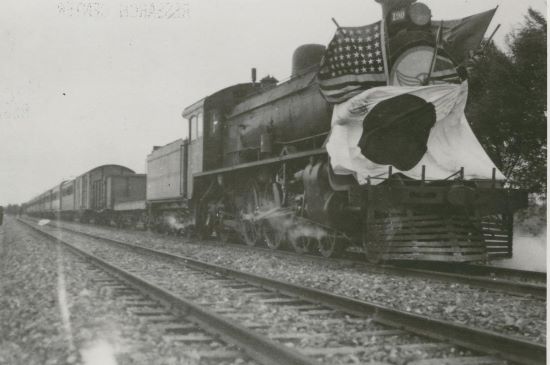
Train passing through Tientsin.
He elaborated on the situation to a letter to Lt. Col. Hjalmer Erickson a friend from the 1st Division in World War I:
I was very lucky in arriving here just one week before the Civil War broke out in North China. Before I had learned my way about town and around the military compound, we were involved in meeting constantly changing situations growing out of the Chinese factional war.
In all, more than 100,000 soldiers passed through Tientsin north or south, by rail, marching and on the Pei Ho in 3,000 ton steamers. Most of these paused here for from a day to a week. The retreating Wu P’ei-fu forces largely disintegrated in this immediate vicinity and for a time constituted our most serious problem.
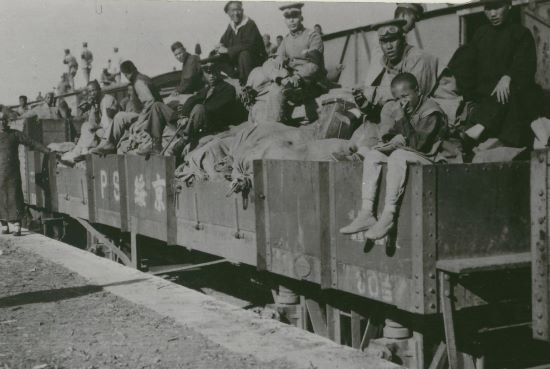
Chinese soldiers on a train. The Chinese units tended to keep their trains, and lines were frequently blocked waiting to take soldiers back after fighting.
Marshall first served as the executive officer and then the commander of the 15th Infantry Division, based in Tientsin (Tianjin), on China’s east coast, between Beijing and the Yellow Sea.
Marshall didn’t waste any time on his arrival in China, as he explained in a letter to John C. Hughes, who had also been one of Pershing’s aides:
I have been exceptionally busy since my arrival. The first two months we were engaged in a modified form of field service,—outposts, patrols, detachments guarding bridges, r r shops, &c. Two of my companies were in the midst of heavy fighting and many of the officers carried out their missions guarding bridges, putting thru trains &c., with guns or knives pointed at their stomachs. Nevertheless we got thru without untoward event. More than 100,000 Chinese troops passed thru Tientsin, at least half of them pausing here for a day, week or longer. Equipment very modern. Discipline fair in one army and rigid in the victorious. We disarmed and collected hundreds of the disorganized defeated force.
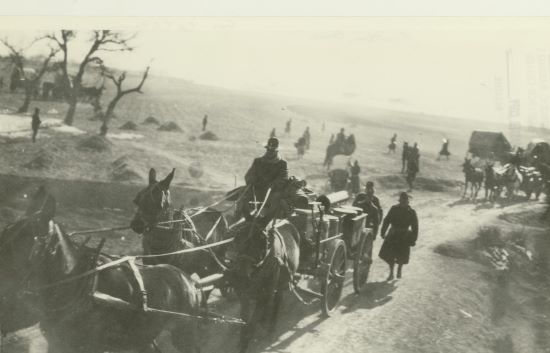
The U.S. Army in the field in China.
Marshall, never content to sit in an office, spent time seeing to the unit’s soldiers, and this was not without risk. At one point he ran into some difficulties with local “bandits,” as told by Col. J.E. McCammon, then a lieutenant in the 15th Infantry:
Bandits in China were renegade soldiers. Lived on the country, attacked the peasants. One day Marshall riding on country roads and met a group of four horsemen. If you give a group a chance to make a plan they may kidnap you or do something else. They loped when Marshall did. Marshall decided he had better not give them a chance to get set. He turned his horse and charged them. They took off. You had to use the right psychology.
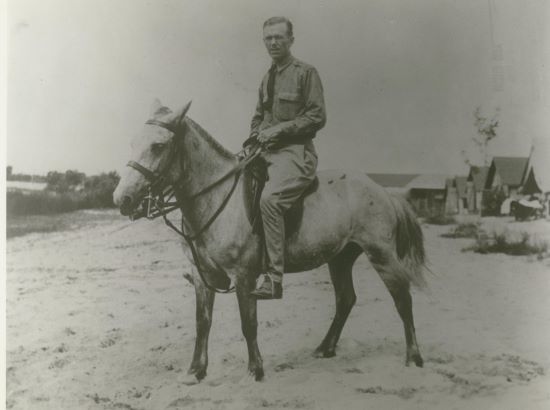
Marshall in China on horseback, his preferred transport in visiting and checking on units.
Marshall hid this and other information from Lily and her mother, reporting to Hines that “Mrs. Marshall and Mrs. Coles are only partially aware of the present situation. Their minds are centered on househunting. We are living at the Astor Hotel at present but hope to get settled by Oct. 15th which will be a comfort to us all.”
They did get settled fairly quickly, as Marshall reported to Hughes shortly after Christmas “Mrs. Marshall and her mother have grown very fond of China. We have a comfortable, modern house, a good chauffeur and excellent house servants.” He also noted that Lily and her mother enjoyed the shopping in China.
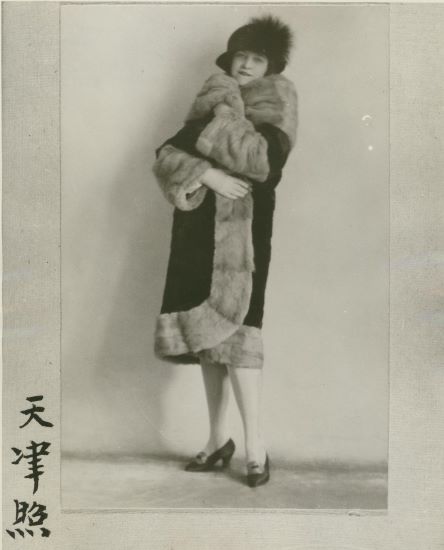
Lily Marshall in China.
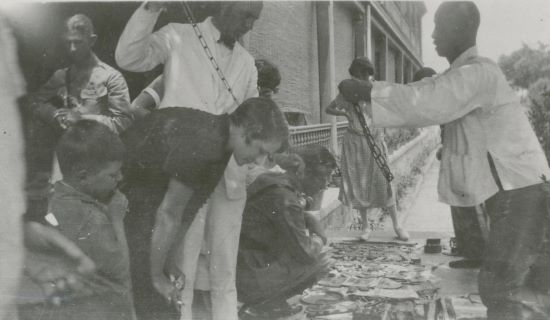
Marshall got in some shopping in China as well, here shown at a local market.
In another letter to Hines, Marshall notes that junior officers hadn’t changed since Marshall had been one: “the daily sound of the guns booming is the same and has continued for two weeks; the exciting rumors are of the same nature; the young officers are pulling on the leash in the same old way to get the detail for the International Train or for patrols going in the apparent direction of trouble.”
Marshall liked to see and learn things for himself, so while in China, he studied Chinese, mostly likely the Mandarin dialect. He wrote of his language studies and how useful they were to Pershing:
My Chinese has progressed far beyond my knowledge of French or Spanish, and is very useful. It will be a great asset to me if real trouble develops out here.
I think I made a wise decision in selecting China for station as there appear to be more prospects for interesting events here than elsewhere. I have done my best to perfect myself in Chinese and last week caught up with the first class to start Chinese instruction in February, 1924. At my present rate I should be well ahead of them in another month. Yesterday, while conducting a summary court trial, I drew a Chinese witness who could not speak or understand English. Rather than hold over the case until an interpreter could be secured, I took his testimony in Chinese and did not have very much trouble in handling him.
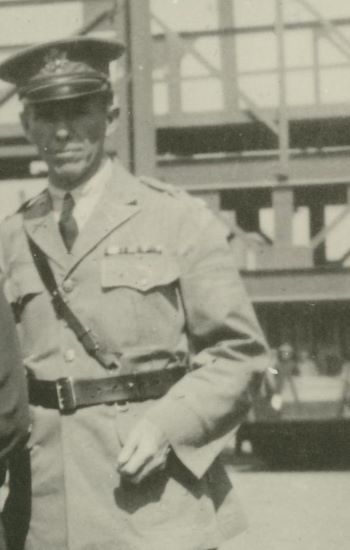
Marshall shortly before leaving China.
Marshall truly enjoyed his time in China, reporting to Hines “My enjoyment of service out here grows with each month. The work is interesting, the conditions exciting and the time flies.”
Marshall spent three years in China, and was posted to the Army War College in Washington, D.C., on returning to the United States.
Before becoming director of library and archives at the George C. Marshall Foundation, Melissa was an academic librarian specializing in history. She and her husband, John, have three grown children, and live in Rockbridge County with three large rescue dogs. Melissa is known as the happiest librarian in the world! Keep up with her @MelissasLibrary.
